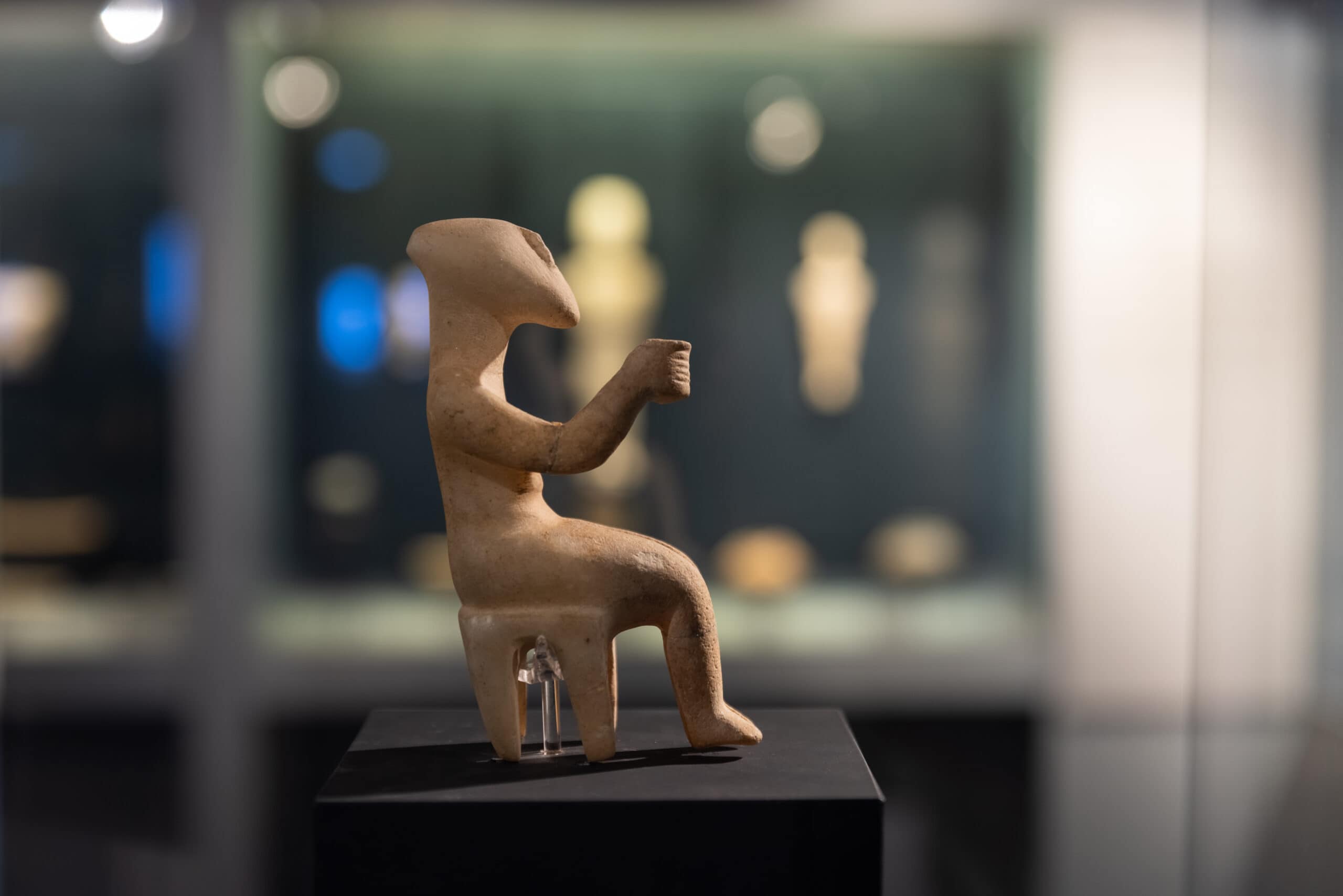The Petros D. Goneos Memorial Award
ACADEMIC YEAR 2024 – 2025
SCHOLARSHIPS

To this end, they have announced the annual 7000 USD Award in memory of Petros D. Goneos, former active member and Vice President of the Cycladic Art Foundation, to be given in full for one academic year to each of two equal candidates or to a group of candidates submitting a joint research proposal and judged by an Academic Advisory Committee.
The aim of the Museum of Cycladic Art and the Cycladic Art Foundation is for this annual academic Award to become an institution that will essentially promote research and the production of high quality studies on the culture of the Cyclades over time, while helping young researchers in their first academic steps.
WINNERS
“The initial stages of urbanization in the Aegean under the microscope”
Vrije Universiteit
“Investigating health levels and social transformations in populations from Cyclades during Classical Antiquity. The people at the cemeteries of Chora Tinos and Naxos.”
PhD cand. STARC, The Cyprus Institute
ACADEMIC COMMITTEE
Professor Jan Driessen
Dr. Anastasia Gadolou
Dr. Dimitrios Athanasoulis
Professor Nikos Kontogiannis
Professor Apostolos Sarris
Dr. Myrsini Gkouma

The initial stages of urbanization in the Aegean under the microscope
This study includes the microstratigraphic analysis at the Early Bronze Age settlement of Dhaskalio and examines the evidence which reflect the initial stages of urbanization (use of space, architectural technology and human activities) on a scale not visible to the naked eye.
The aim of the analysis is to identify the individual construction materials and their properties, the details in the construction techniques, but also the micro-episodes of use and reconstruction of the occupational spaces. Micromorphological analysis of these micro-episodes brings to light changing practices at a detailed temporal and spatial scale, reconstructing the stages of construction, abandonment and possible reuse of the settlement.
Anna Karligkioti, PhD cand.

Investigating health levels and social transformations in populations from Cyclades during Classical Antiquity. The people at the cemeteries of Chora Tinos and Naxos.
The award in memory of P.D. Goneos will support the first bioarchaeological study of historical period populations in the Cyclades. Integrating evidence coming from the study of human skeletal remains in their respective funerary and historical context, the project aims to explore social distinctions and identity formation in the Cyclades during Classical Antiquity.
To do so the study will examine health inequalities, differential access to food, mobility, kinship and activity patterns coming from the people inhabiting the islands of Naxos and Tinos from the Classical until the Roman era.
ABOUT THE AWARD
The award is destined to encourage, support, and promote high quality research from new researchers who focus on topics related to the culture of the Cyclades from the Neolithic up to the Post-Byzantine period or its perception to the modern times. All proposed projects will be approached through disciplines as Archaeology, Anthropology, and Art History, as well as natural and physical sciences.
As from this year, the award will be increased to $7,000, which will be given in full for one academic year to each of two equal candidates or to a group of candidates submitting a joint research proposal. It will be paid in one instalment at the beginning of the academic year (September). In the case of a group proposal the amount of money remains the same as for individual proposals. Successful applicants are not eligible to apply for a second year of funding.